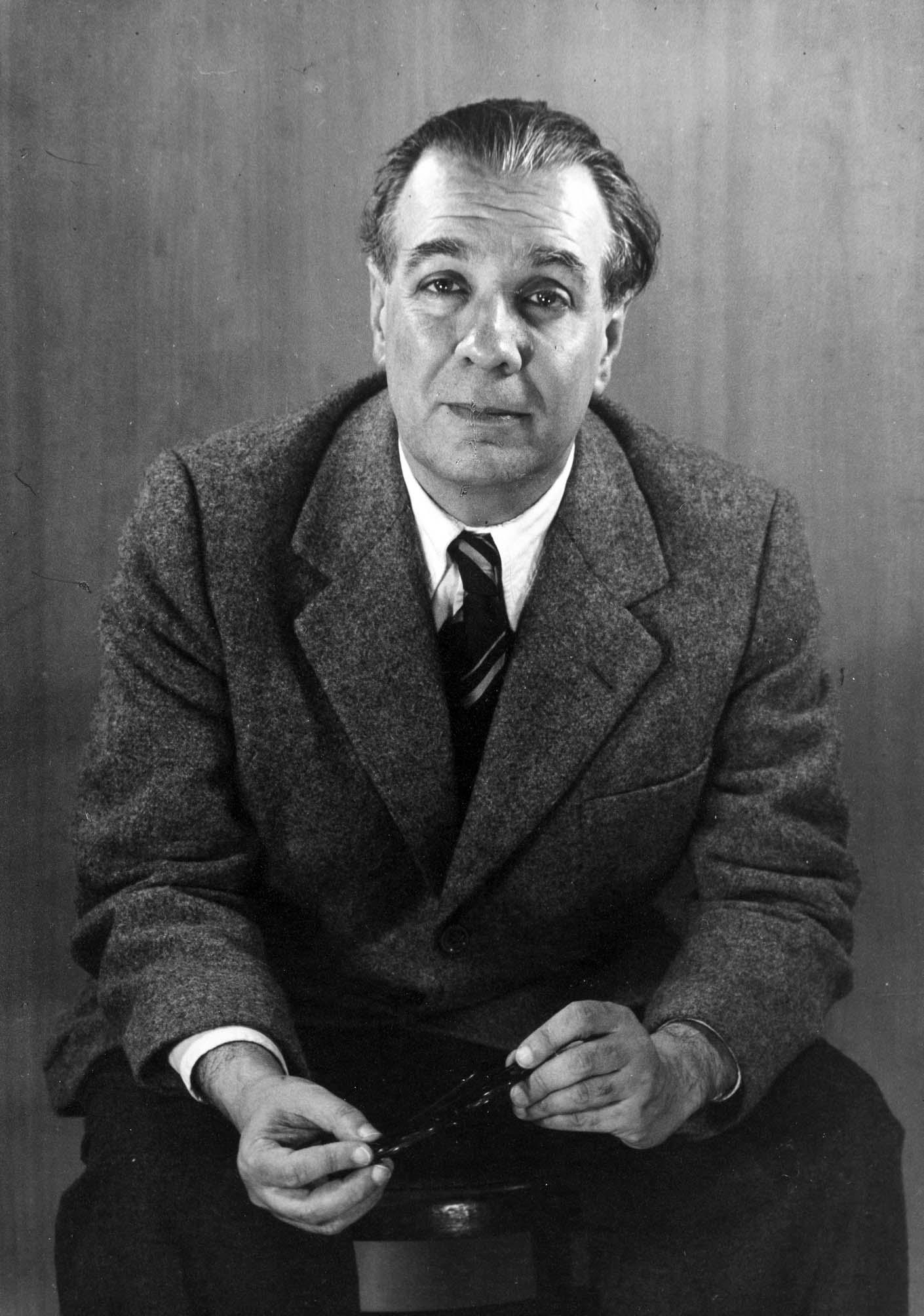Хорхе Луис Борхес знаменитые цитаты
Хорхе Луис Борхес Цитаты о мужчинах
Сад расходящихся тропок
Бессмертный
Хорхе Луис Борхес цитаты
Интервью. С Антонио Каррисо
„Фолклендская война была дракой двух лысых из-за расчески.“
Фолклендская или Мальвинская война 1982 - война между Великобританией и Аргентиной за контроль над Фолклендскими островами (в Аргентине их называют Мальвинскими). Ни Аргентина, ни Великобритания формально не объявляли друг другу войны; с точки зрения обеих сторон, военные действия представляли собой восстановление контроля над своей законной территорией. Война закончилась победой Великобритании, которая контролирует острова по сей день. Победа способствовала росту патриотизма в Великобритании и усилению позиций правительства Маргарет Тэтчер.
который, будучи повторенным, становится порядком — Порядком
Вавилонская библиотека
Хорхе Луис Борхес: Цитаты на английском языке
Shakespeare's Memory, (1983); as translated by Andrew Hurley in Collected Fictions (1998)
Arrasado el jardín, profanados los cálices y las aras, entraron a caballo los hunos en la biblioteca monástica y rompieron los libros incomprensibles y los vituperaron y los quemaron, acaso temerosos de que las letras encubrieran blasfemias contra su dios, que era una cimitarra de hierro.
The Theologians [Los Teólogos]
As translated by Will Fitzgerald
Other Inquisitions (1952), The Analytical Language of John Wilkins
En mi juventud probé la mescalina y la cocaína pero enseguida me pasé a los pastillas de menta que me parecieron más estimulantes. Si las drogas producen el mismo efecto que el alcohol, no me interesan. Un borracho es evidentemente ridículo. He estado borracho algunas veces y lo recuerdo como una experiencia muy desagradable para los demás y para mí.
As quoted in Borges, El palabrista (1999) by Estebán Peicovich, p. 53
Tlön, Uqbar, Orbis Tertius (1940)
Вариант: Today, one of the churches of Tlön Platonically maintains that a certain pain, a certain greenish tint of yellow, a certain temperature, a certain sound, are the only reality. All men, in the vertiginous moment of coitus, are the same man. All men who repeat a line from Shakespeare are William Shakespeare.
“I will pause to consider this eternity from which the subsequent ones derive.”
"A History of Eternity" in Selected Non-Fictions Vol. 1, (1999), edited by Eliot Weinberger
"Note on Walt Whitman" ["Nota sobre Walt Whitman"]
Discussion (1932)
Evaristo Carriego (1930) Ch. 3
“Your unforgivable sins do not allow you to see my splendor.”
"The masked dyer Hakim of Merv" [El tintorero enmascarado Hakim de Merv] Universal History of Infamy (1935); also translated as "Hakim, Masked Dyer of Merv" ( review of "Hakim, Masked Dyer of Merv" http://www.elimae.com/reviews/borges/merv.html)
Statement to the Argentine Society of Letters (c.1946)
"A Poem by Oscar Wilde" http://www.themodernword.com/borges/borges_wilde.html (1925) An essay on Wilde and his Ballad of Reading Gaol.
“The Falklands thing was a fight between two bald men over a comb.”
On the Falklands War, as quoted in Time magazine (14 February 1983)
“Universal history is the history of a few metaphors.”
"Pascal’s Sphere" ["La esfera de Pascal"] (1951)
Variant translations: Perhaps universal history is the history of the diverse intonation of some metaphors.
It may be that universal history is the history of the different intonations given a handful of metaphors.
Other Inquisitions (1952)
Autobiographical Notes (1970)
The Garden of Forking Paths (1942), The Garden of Forking Paths
“The minotaur more than justifies the existence of the labyrinth.”
"Ibn-Hakim Al-Bokhari, Murdered in His Labyrinth", in The Aleph (1949); tr. Andrew Hurley, Collected Fictions (1998)
“Every novel is an ideal plane inserted into the realm of reality.”
"Partial Magic in the Quixote", Labyrinths (1964)
“The heresies we should fear are those which can be confused with orthodoxy.”
The Theologians, translated by James E. Irby (1964)
“The time for your labor has been granted.”
"The Secret Miracle"
Ficciones (1944)
“May Heaven exist, even if my place is Hell.”
Que el cielo exista, aunque mi lugar sea el infierno.
"The Library of Babel" (1941)
Variants:
I cannot think it unlikely that there is such a total book on some shelf in the universe. I pray to the unknown gods that some man — even a single man, tens of centuries ago — has perused and read this book. If the honor and wisdom and joy of such a reading are not to be my own, then let them be for others. Let heaven exist, though my own place may be in hell. Let me be tortured and battered and annihilated, but let there be one instant, one creature, wherein thy enormous Library may find its justification.
May Heaven exist, even if our place is Hell.
"Deutsches Requiem". (Emece edition, 1974)
“I have known that thing the Greeks knew not – uncertainty.”
"The Lottery in Babylon"; tr. Andrew Hurley, Collected Fictions (1998)
The Garden of Forking Paths (1942)
Вариант: I have known uncertainty: a state unknown to the Greeks.
"Avatars of the Tortoise" ["Avatares de la tortuga"]
Discussion (1932)
Page 96.
Conversations with Jorge Luis Borges (1968)
He sospechado alguna vez que la única cosa sin misterio es la felicidad, porque se justifica por sí sola.
"Unworthy", in Brodie's Report (1970); tr. Andrew Hurley, Collected Fictions (1998)
Вариант: I have thought from time to time that the only thing without mystery is happiness, since it justifies itself.
